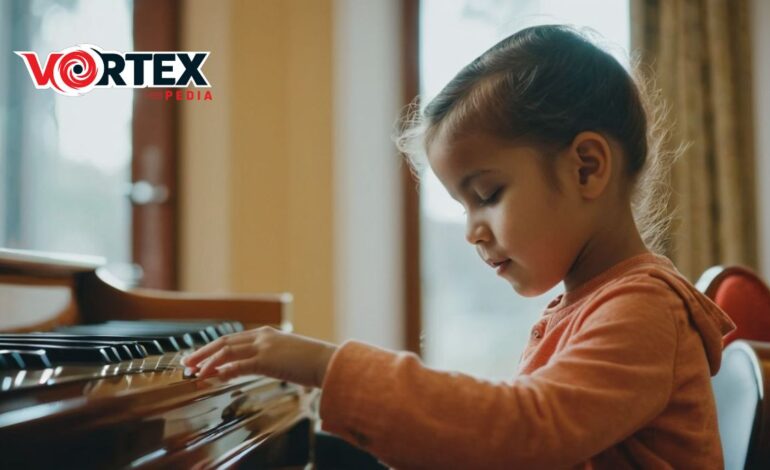
The Benefits of Music, Art, and Drama in Child Development
The child development process is an interesting process that can be full of many learning experiences. Of course, there is nothing wrong with the academic feel of learning such as math, science, and linguistics that is so dominant in most schools; however, incorporating something artistic like music, art, and drama into the child’s daily timetable can go along way in developing the young one. Besides being constructive to creativity, such activities are instrumental in cognitive, emotional, and social growth. It is now the right time to analyze the deeper role that music, art, and drama play in the formation of young people.
The Role of Creative Arts in Cognitive Development
- Enhancing Memory and Learning
These include music, art, and drama which help develop the brain areas that boost memory, attention, and learning. Whenever children get involved in these activities they are usually expected to recite the songs, lines, or patterns. It helps to consolidate their memory and enhance the section of the brain that helps them memorize information important for studies.
- Boosting Problem-Solving Skills
Creative arts inspire children to reason and employ problem-solving skills. No matter, whether they are trying to mix colors for a painting, play a tune on an instrument, or depict a role in a play, they are trained to think and decide. This aspect applies not only to arts and is helpful to them in other areas of life too as a problem-solving tool.
- Fostering Creativity and Innovation
Children creatively develop when learning and participating in music, art, and drama because children can freely express themselves. It assists them to be extra creative and come up with out-of-the-box solutions to problems. Hence, over a period, such creative skills make way for uniqueness in other various aspects of life including academic work and subsequent occupations.
Emotional Development Through Expression
- Building Self-Confidence
Music, art, and drama activities contribute to the self-esteem of the children. It is the same way when a child draws a picture, sings a song, or acts in a drama, they are applauded or given positive feedback by their colleagues or other people. This helps them gain more confidence and freedom in themselves to be able to express themselves.
- Developing Emotional Intelligence
Creativity allows children to do something in order to free their minds and anger at the same time. By dancing, singing, and acting, children grow in the ability to identify and deal with many of their feelings, hence increasing emotional intelligence. Thanks to such an approach, the child can learn about his or her emotions and perceive other people, which is critical for creating meaningful connections.
- Reducing Stress and Anxiety
The use of creative arts can help children in therapy as it will be established in the following text. This makes it possible to direct emotions and thoughts into the artifact which makes it easier to manage stress and anxiety. Music, in particular, can soothe kids and create proper conditions for an efficient learning process. Drama as well as art can help to free one from stress since it also involves acting out feelings.
Social Development Through Collaboration
- Encouraging Teamwork and Cooperation
Music, art, and drama most of the time, call for group projects where the children have to cooperate in the completion of a certain task. Whether it is the playing of a band, the painting of a mural, or the staging of a play, all of these activities enhance what is known about teamwork and cooperation among children. They learn how to be able to express themselves, assign chores, and also to understand and value the efforts of others.
- Enhancing Communication Skills
Looking at the drama activity on its own, the subject assists children in the improvement of their communication abilities. Performing presupposes that they have to respond not only with their words but also with their faces and, if necessary, with their limbs as well to transmit feelings, thoughts, and purposes. These skills are useful in interpersonal communication and assist kids in expressing their thoughts and emotions.
- Friendship and Social Skills
Creative arts as an avenue enables children to get acquainted with or meet other children who have the same interests as them. Such occurrences bring fellow feelings, and friendship, and generally create bonds that are long-lasting. Children are never lonely because they are grouped according to art classes, choirs, or drama clubs, and therefore they have the opportunity to form social networks.
- Enhancing Academic Performance
The following is the primary focus of the proposed project; Strengthening Language and Literacy Skills.
To an extent, music, art, and drama assist in the acquisition of musical, artistic, and dramatic language and literacy. Songs, rehearsal of lines and the formation of numbers of stories for play or artwork introduce children to more new words and use of language. This exposure enhances their literacy skills perhaps in language arts and hence enhances general course performance.
Improving Concentration and Discipline
Musical lessons, painting or sculpting, the study of a play or a movie demand one’s attention and be consistent. These activities enable the children to learn that practice, patience and sheer hard work are dear. They increase the concentration and discipline they attain through creative arts and pass them on to their academic work hence improving their performance.
Promoting a love for learning
Relatively, creative arts enable learners to acquire knowledge and skills that they would wish to possess. It is a well-known fact that when children are motivated; they are always happy to do things hence developing the habit of learning. It can also trigger interest in some fields so the child feels more encouraged to study that particular subject and even in the future as a grown-up.
Artistic Development: Physical Growth
- Enhancing Fine Motor Skills
Drawing, painting, and especially sculpting are known to foster the child’s development of fine motor skills. These activities introduce intricate hand movements and that helps to develop hand and eye coordination and hand dexterity. By using tools such as paintbrushes, scissors and clay the child gradually builds upper limb muscles and hand and finger muscles respectively.
- Improving Gross Motor Skills
Music and drama are people using their bodies as instruments to create harmony as they dance to the beat, perform music, or act out scenes. These activities improve gest motor skills as physical activities involve the whole body. Dancing for instance enhances balance, coordination, and aerobics hence enhancing the overall physical development of the body.
- Promoting Healthy Physical Activity
Some of the several creative arts, particularly movement creative arts, are associated with the encouragement of physical activity. Singing, dancing, acting and even certain instrumental playing involve children moving about, and this is good for them, in every way possible. These activities help in promoting healthy lifestyles within a youthful poblacion level, or demographic.
Conclusion:
Music, art, and drama have a positive and huge impact on our society or lives more than being considered as entertainment. They are very vital in helping children develop in all aspects including intellectual, emotional, social, and physical. Incorporating these creative endeavours into a child’s life ensures that parents as well as teachers arm the child with the then essential components in their lives.
In a society where academic accomplishment seems to dominate the rest the focal point should be that creative arts are equally important in the development of individuals. Listening to music, learning art, or engaging in dramatics not only makes children enjoy life but also equips them with a bright and successful future.








